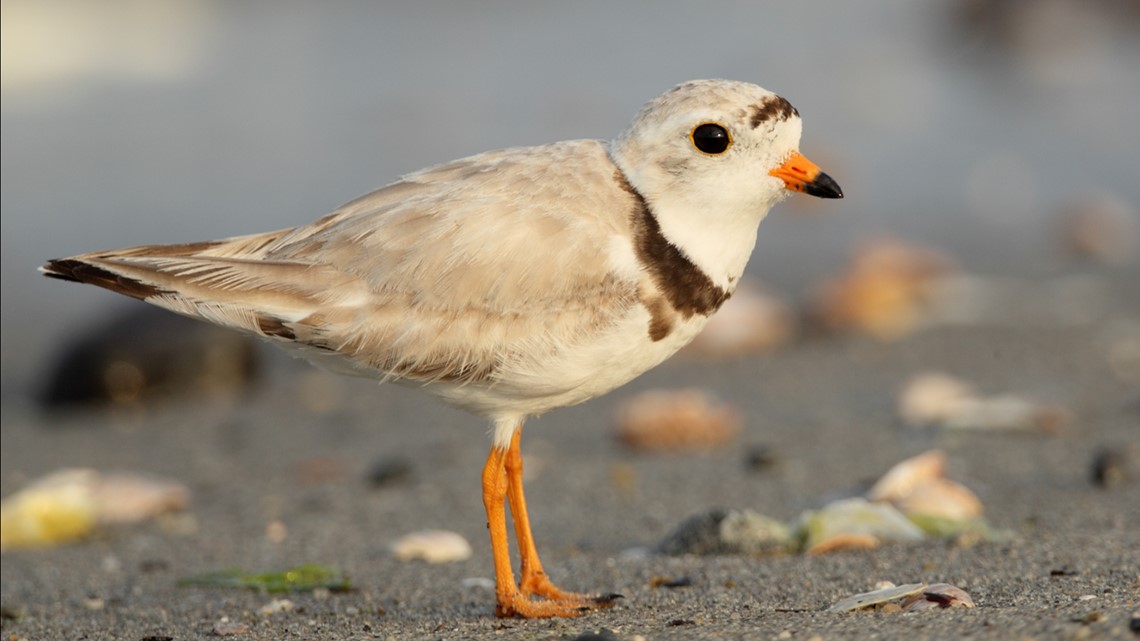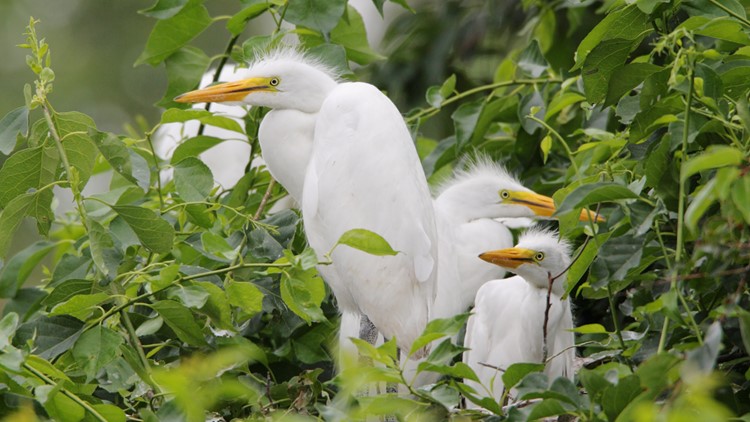MILFORD, Conn. — Connecticut’s Department of Energy and Environmental Protection (DEEP) has announced that Charles Island in Milford and Duck Island in Westbrook will be closed to the public from Memorial Day weekend through September 9, 2021, to prevent disturbances to nesting birds. Both islands have been designated by DEEP as Natural Area Preserves, primarily due to their importance as nesting habitats for several state-listed birds, including snowy egrets and great egrets (a state threatened species), glossy ibis, and little blue herons (a species of special concern in CT). The two islands also have been designated as Important Bird Areas by Audubon Connecticut.
In addition, DEEP is asking beach visitors and boaters along the Connecticut shoreline to respect the fencing and yellow signs warning of piping plover and least tern nesting sites.
The piping plover, a small, sandy-colored shorebird about the size of a robin, is a threatened species under the federal Endangered Species Act, as well as a state threatened species in Connecticut. The small, gull-like least tern, which nests in colonies in the same beach habitat as the piping plover, also is a state threatened species.


Both piping plovers and least terns use a shallow depression in the sand for a nest. Their sand-colored eggs and young are so well camouflaged that they are easily stepped on. When intruders approach, young piping plovers are likely to stand motionless while the adult tries to attract attention by pretending to have a broken wing or flying around the intruder. If you witness this behavior, DEEP advises you to move away from the area at once.
Jenny Dickson, DEEP Wildlife Division Director said, “Closing the islands and enlisting the public’s help and cooperation are simple but effective ways to protect these birds.”
Protecting heron and egret nesting areas on Charles and Duck Islands are important steps to prevent disturbances that can result in abandonment of the nests, and possibly of the entire colony. This would have a tremendous negative effect on these declining bird populations. To protect the nesting colonies (also known as rookeries), educational signs have been erected at access points.
When young birds become agitated by disturbances, they often fall from the nest. Once grounded, the young birds die of starvation or predation. If disturbances continue, the adults may abandon the nesting area.
Do not attempt to “rescue” young birds that appear to be lost or too young. They should not be removed from the beach to be cared for at home. In most cases, when immature birds are found alone, the adults have been frightened away but remain nearby and will return to their young once the intruder leaves.
Examples of disturbances to these rookeries include unleashed dogs, boat and kayak landings, people approaching fenced nesting areas, campouts, and bonfires.
DEEP Environmental Conservation Police Officers will be patrolling the islands. The entire island areas are completely closed. Landing of watercraft on the beaches is prohibited. The public can help to protect nesting birds by following the closure and reporting any observed violations by calling DEEP’s 24-hour Dispatch Center at 860-424-3333.
The DEEP Wildlife Division also provides the following advice to protect nesting shorebirds:
- Walk close to the water on the lower beach, so birds can rest and nest on the upper beach. Signs usually alert you to these areas. Follow all other guidance on signs, and respect all areas fenced or posted for the protection of wildlife.
- Refrain from walking dogs or allowing house cats to roam freely on beaches during the nesting season. Dogs are not allowed at many beach areas during the bird nesting season.
- At areas where dogs are allowed, always keep them on a leash, but remember that even leashed dogs have the potential to step on nests and young.
- Keep your distance while photographing or birdwatching so the birds feel safe to attend to their eggs and chicks.
- Remove trash and food scraps, which attract animals that might eat piping plover eggs and chicks.
- Do not feed animals or wildlife on or near the beach.
It is illegal to hold wildlife for rehabilitation without proper state or federal permits. In addition, shorebirds have a unique diet that people would find hard to duplicate, probably resulting in starvation of the young bird. Any violations affecting wildlife should be reported to the DEEP’s 24-hour, toll-free hot line: 1-800-842-HELP.



